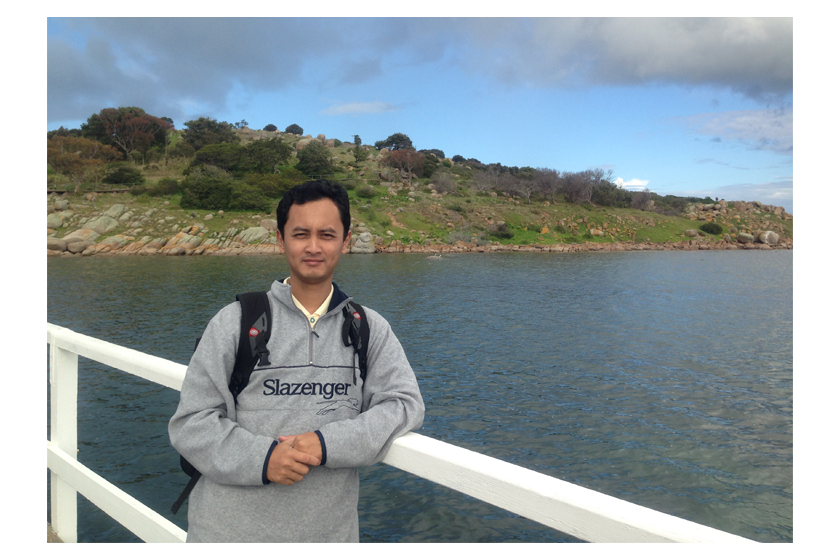As a trade negotiator, Handoko has the challenging task of striking a balance between Indonesia’s national interests and the interests of potential trading partners in free trade agreements.
In each negotiation, Handoko and his colleagues must ensure a bilateral free trade agreement will be beneficial to both Indonesian stakeholders and their partners.
“On one side, there are the domestic industries that are still developing that need to be protected. On the other side, (partners) want an open and competitive market,” said Handoko, a junior expert trade negotiator at the Directorate-General of International Trade Negotiation at Indonesia’s Ministry of Trade.
“It’s challenging and exciting. We can’t force our will on trading partners. There should be a win-win approach.”
Removing trade barriers while protecting national interests is more challenging when Indonesia, as an emerging economy, negotiates free trade agreements with developed countries, usually exercising an open economy.
“It is not as simple as deciding ‘yes’ or ‘no’ to opening up certain sectors without data,” said Handoko, an Australia Awards and Ministry of Trade’s Split Site Master’s Program (SSMP) alumnus.
“We have academic studies to show which sectors need to be strengthened and which ones can be opened up, and the mitigation policies. If we have academic studies that back us, it will be easier for stakeholders and partners to accept trade deals.”
Study in Indonesia and Australia
In 2009, Handoko joined the Ministry of Trade (MOT), a year after he graduated from the Agricultural Socio-Economics at the Gadjah Mada University in Yogyakarta.
Handoko had an opportunity to learn and develop his trade negotiation skills when he was selected to pursue a dual master’s degree under the SSMP in 2012, when it was a pilot project.
He studied at the Institut Pertanian Bogor where he obtained a Masters of Science in Economics in 2013. The following year, he completed his Masters of Applied Economics at the University of Adelaide.
The SSMP is long-term scholarship established through cooperation between the Australian Government, through Australia Awards in Indonesia, and the Government of Indonesia with a joint funding agreement.
The scholarship program offers the opportunity to obtain a master’s degree from an Indonesian and an Australian university in 2.5 years. It consists of two semesters studying at a university in Indonesia, one semester of pre-departure training in Indonesia, and two semesters in Australia.
The SSMP is designed to encourage the development of knowledge, insights, and scientific expertise to improve the service standards and skills of professionals required by the Government of Indonesia.
Since it was launched in 2017, the SSMP has partnered with 11 Indonesian Government organisations, from central to provincial and regional governments. As many as 131 scholarship recipients have obtained or will obtain degrees in 19 different programs in nine Indonesian universities and nine Australian universities.
Valuable experience
The SSMP provided Handoko with academic and international experience that he needed to sharpen his negotiation skills.
“Studying at Adelaide University allowed me to learn about international trade from experts. It also gave me an insight into how Australia, as a developed country, applies what it has negotiated to benefit its citizens,” said Handoko, who chose to focus his research on free trade agreements in Asia-Pacific regions.
Handoko had a chance to apply his study directly when assisting the Indonesia-Australia Comprehensive Economic Partnership Agreement (IA-CEPA), a centrepiece for the economic relationship between the neighbouring countries. The negotiation kicked off when he was studying in Adelaide.
“It was like a synergy. I studied and assisted with CEPA negotiations,” he said.
Supply chain partnership
IA-CEPA aims to increase trade and investment between the two countries and integrate bilateral and regional economies. In addition, it seeks to forge a strong foundation for cooperation in various sectors, including security, environment, economic cooperation, transnational issues and people-to-people links.
IA-CEPA negotiations started in September 2012, but talks were suspended from 2013 to 2015. Finally, in March 2016, Indonesia and Australia agreed to resumed discussions. After 12 rounds of negotiations and five Chief Negotiator meetings, the two countries completed substantial talks.
On 4 March 2019, Indonesia and Australia signed IA-CEPA in Jakarta.
Indonesia’s President Joko Widodo signed the IA-CEPA Ratification Law on 28 February 2020 after the House of Representatives ratified the agreement.
One of the main features that differentiates IA-CEPA from other free trade agreements, said Handoko, is the “Economic Powerhouse” concept. It provides for collaboration between the two countries to improve industrial and agricultural productivity, human capital, and increase exports to markets in third countries.
“For example, for electric vehicles. We import the battery from Australia, manufacture the electric vehicles, and export them to other countries. It’s like a collaboration of supply chain,” he explained.
“We want to upgrade to become a developed country, to upgrade our economy. With IA-CEPA, we have to push ourselves to meet the standards of developed nations.”
As for pursuing trade agreements, Handoko said, Indonesia still needs more trade negotiators, and needs to improve their capabilities.
“There are not many negotiators in our ministry handling trade negotiations globally. However, their capabilities are gradually improving after taking graduate studies with scholarships, including from Australia Awards,” he said.
Photo courtesy of Handoko.


 Handoko strives for mutual benefits in free trade negotiations
Handoko strives for mutual benefits in free trade negotiations
